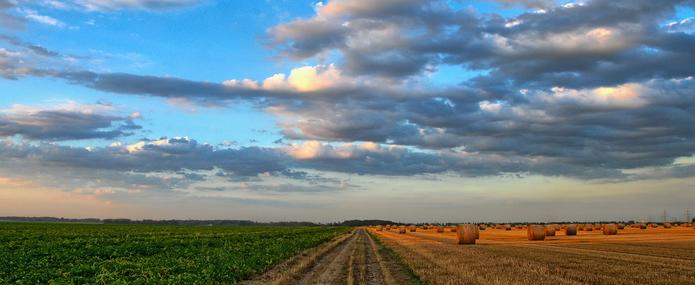Food security and nutrition, climate change, working conditions, producer and consumer health, value sharing: the European agri-food system faces some major challenges, calling into question not only its economic viability but also its environmental and social sustainability. For many stakeholders, the sector needs to change and to take a central role in the ecological and inclusive transition. This was the tone of President Macron's speech in Rungis, midway through the États Généraux de l’Alimentation (national conference on food). It identifies not only the urgent economic and social issues to be addressed today, especially through better distribution of added value, but also the need to integrate these short-term actions into a broader examination of the pathways towards long-term change and the corresponding public policy requirements. Contributing to these discussions, in the context of recent changes in France, Europe and the other major agricultural regions of the world, is central to IDDRI's work.
Structuring discussions on the future of the agricultural crisis
The successive agricultural crises for pork, milk and also cereals, following the disastrous harvest in 2016, have highlighted the economic vulnerability of farms and the difficulty of working conditions for farmers. At the same time, the French national emissions inventory imputes 20% of emissions to agriculture, and the sector's contribution to the destruction of certain ecosystems is acknowledged, even though these provide the ressources upon which agriculture depends (soil life, pollinators, etc.). These elements clearly indicate the systemic and structural challenges involved in remodelling our agriculture. In terms of nutrition, it is important to note that the food system as a whole has also evolved towards increasingly unsustainable diets, which are too rich and contain too much sugar and meat, with growing impacts on public health. There is broad support for these findings today, and the current political momentum is set against a backdrop of political and social tension.
The CAP reform of 2013, along with the agroecology project by Stéphane Le Foll (French Minister of Agriculture from 2012 to 2017), have been the subject of heated debate regarding the EU and French public policies that would enable a transition towards more sustainable agricultural models. These debates have nevertheless foundered on the fact that disputes about the agricultural models that would best meet these challenges, especially between sustainable intensification, implying more incremental change, and agroecology, requiring more systemic change, are not structured by a long-term dynamic vision. In this sense, they fail to consider current lock-ins and path dependencies, or to identify pathways that would enable change—of any kind. For example, while everyone agrees that pesticide use needs to be reduced—this objective was the subject of an agreement under the Grenelle Environment Forum in 2007—public policy making consistently comes up against the fact that the path towards an alternative model is disputed as being unfeasible. There is now an urgent need for discussions on these transition pathways, as part of a systemic, participatory process, with inputs on at least three levels.
Addressing urgent challenges, building the future: a long-term systemic approach
This approach will make it possible to integrate response to the urgency of the crises affecting farmers into a long-term perspective. In other words, it will ensure the solutions provided not only tackle current difficulties, but also support structural changes on farms and build their resilience. This kind of approach also makes room in the debate for elements that are often neglected, or issues that have too long remained on the periphery. This applies to linkages between plant and animal productions, which should be central to any discussions on food system sustainability in a context in which 58% of cereals available in Europe are used to feed European livestock. It also applies to the growing capital intensity of farms, which makes it increasingly difficult for anyone to take over a holding (between 200 000 and 300 000 euros of investment are needed for someone to set themselves up in farming today) and calling into question the type of technological innovations farmers can realistically envisage, given their consequences in terms of investment and debt. The challenges of adaptation to the impacts of climate change, which are already beginning to seriously affect this sector, and the likely scale of changes needed to ensure future agriculture contributes to a “net-zero emissions” Europe by 2050, are a final example of issues that could be better addressed through a long-term approach.
Finally, in accordance with the goal of the national conference on food, this systemic approach can be used to rethink these changes at the scale of the food system as a whole, in other words to integrate two key variables: linkages between food consumption and agricultural production need to be central to discussions, along with the role of public action in dietary behaviours; and negotiations on the sharing of value between the different links of the chain need to be associated with collective discussions on value creation in the long term. For several years, IDDRI has been involved in research and policymaking on these long-term sustainable change pathways.
Based on the development of scenarios, this research first requires the definition of goals assigned to the pathway. The reference framework provided by the Sustainable Development Goals (SDGs), which are universal and indivisible, can be used in relation to agri-food system changes as a template for prioritising the goals and related options.[1]. Morover, after establishing an organised inventory of agroecological transition initiatives in various European countries
(including in Eastern Europe), IDDRI developed a model of the European agri-food system converted to agroecology by 2050: the first agricultural findings of this exploratory research on alternative production and consumption models will be published by the end of 2017 in order to provide a structured contribution to the debate on possible pathways for change towards sustainable agriculture in Europe.
[1] IDDRI Issue Brief on this subject, forthcoming in October


